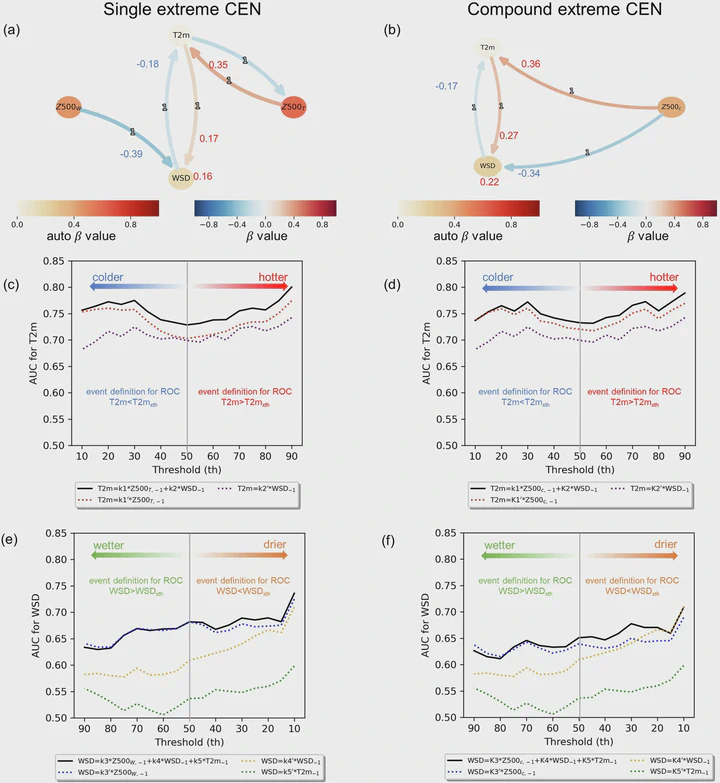Historical changes in the Causal Effect Networks of compound hot and dry extremes in central Europe

Abstract
Changes in hot and dry extremes in central Europe have been attributed to atmospheric circulation anomalies and land-atmosphere interactions. However, the strength of the underlying causal links and their historical trends have not been quantified. Here, we use Causal Effect Networks (based on the Peter and Clark momentary conditional independence algorithm) and show that hot extreme events in central Europe are driven primarily by anomalous atmospheric patterns and soil water deficiency. Dry extreme events are mainly induced by anomalous atmospheric patterns and soil moisture memory, and only marginally by temperature changes. We find that in the period 1979–2020, the influence of dry soil on temperature has been amplified by 67% during compound hot and dry extremes, while the impact of atmospheric drivers on soil moisture has intensified by 50% (36%) during compound (single) extremes. This work highlights the strengthened causal links of compound hot and dry extremes with their underlying drivers under global warming, which can lead to non-linear interactions and increase adaptation challenges.
CITATION:
Tian, Y., Giaquinto, D., Capua, G., Claassen, J., Ali, J., Li, H., & De Michele, C. (2024). Historical changes in the causal effect networks of compound hot and dry extremes in central Europe. Nature Communications Earth & Environment, 5, 764. https://doi.org/10.1038/s43247-024-01934-2